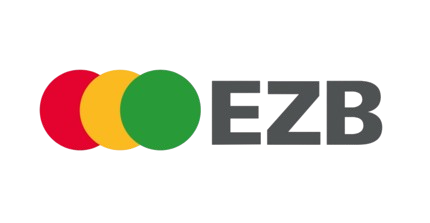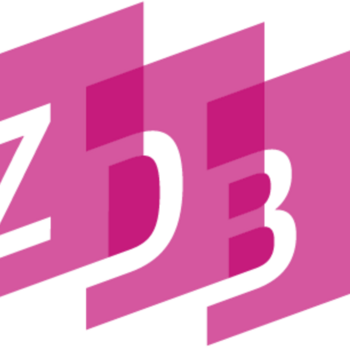Digitalna era transformacije univerziteta: Izazovi i prilike za društvene i humanističke nauke / Digital Era of University Transformation: Challenges and Opportunities for Social Sciences and Humanities
DOI:
https://doi.org/10.48052/19865244.2025.2.245Keywords:
digitalization, social sciences and humanities, hybridization, knowledge, societyAbstract
The digital era generates extremely complex transformative processes in educational institutions, particularly universities worldwide. We are witnessing a transformation of the entire concept of knowledge and the understanding of its purpose and role. The implementation of digital resources and platforms opens up a whole network of possibilities for greater access to knowledge/information and global connectivity among academic communities. Tools such as online libraries, digital databases, digital archives, and various platforms for virtual collaboration are now available to students and educators. However, with this progress come significant challenges and open questions, especially for the social sciences and humanities. These disciplines face a dilemma: will the digital transformation advance or marginalize them? Digital platforms offer advantages in terms of accessibility and innovation, but they also bring dangers. It is inevitable that digital platforms enable faster access to information and innovative teaching approaches, but they also carry numerous risks for the future of education as a whole. There is an increasing trend of pronounced marginalization of the social sciences and humanities, partly as a consequence of the strong focus on STEM disciplines, which are often at the center of attention due to their technological nature and the profit they generate. Moreover, the hegemony of capital-interest trends, which favor technical and market-oriented approaches to education, threatens the traditional mission of universities as spaces for the development and generation of healthy trends in contextual critical thinking. Profit-oriented concepts of education, supported by neoliberal ideology, focus on technological and market-valuable disciplines, while the social sciences and humanities risk being pushed aside. There is a clear trend of favoring various forms/models of hybrid teaching, which combine online and in-person lectures. The loss of physical interaction can negatively affect the development of critical thinking and dynamic discussion in the social sciences and humanities. At universities that have historically been bastions of critical thinking, neoliberal pressures, and direct attacks on critical/liberatory thought are supported by rapidly growing concepts of exclusively profit-oriented paradigms of rationality. Additionally, the digitalization of education and the digital transformation raise the question of the future of the concept of the "knowledge society," which is increasingly being profaned. In this context, the "knowledge society" becomes a concept losing its authenticity, as knowledge is increasingly used as a means for market prosperity, rather than as a tool for the development of broader societal progress. Controlled neoliberal societies, driven by the hegemony of capital-interest trends, increasingly influence the direction of university development, leading to attacks on critical thought.
References
Abazović, D., Alibegović, A., Bakić, S., Čamo, M., Džafić, A., Emirhafizović, M., Filandra, Š., Forić, S., Ibraković, D., Ljubović, E., Mujkić, A., Repovac, H., Repovac Nikšić, V., Sofradžija, H., & Žiga, J. (2021). Razumijevanje društva. Fakultet političkih nauka Univerziteta u Sarajevu.
Acuto M, Parnell S, Seto KC. Building a global urban science. Nat Sust. 2018;1:2–4.
Al-Amoudi, I. (2022). Are post-human technologies dehumanising? Human enhancement and artificial intelligence in contemporary societies. Journal of Critical Realism, 21(5), 516–538.
Baker, P. (2001). Literary theory and the role of the university. Beyond the corporate University: Culture and pedagogy in the New Millennium, 57-70.
Bauman, Z. (2009). Fluidni život. Mediterran Publishing. Novi Sad.
Bauman, Z. (2011). Tekuća modernost. Naklada Pelago. Zagreb.
Bauman, Z. Donskis, L. (2013). Moral Blindness: The Loss of Sensitivity in Liquid Modernity. Polity Press.
Beatty, B. J. (2019). Hybrid-Flexible Course Design: Implementing student-directed hybrid classes. EdTech Books.
Bok, D. (2005). Univerzitet na tržištu - Komercijalizacija visokog školstva. Beograd. Clio.
Bourdieu, P., Passeron, J-C. (1990). Reproduction in Education, Society and Culture. London, Newbury Park, New Delhi. Sage Publications.
Budžetska izdvajanja za istraživanje i razvoj, 2022-2023.
Carroll, N. (2013). E-learning- the Mcdonaldization of education. European Journal of Higher Education, 3:4, 342- 356.
Clough, M. P., & Olson, J. K. (2016). Connecting science and engineering practices: a cautionary perspective. In L. A. Annetta & J. Minogue (Eds.), Connecting science and engineering education practices in meaningful ways: building bridges (pp. 373–385). Dordrecht: Springer.
Delibegović Džanić, N., Hatipoğlu, Ç., Miloshevska, L., & Gajek, E. (2023). Has Online Learning Changed the Way We Study? Student Evaluation of Teachers' Pedagogical Skills during the First Covid-19 Period And Potential Change in Their Learning Habits. Journal of Language & Literary Studies/Folia Linguistica & Litteraria, (45). 99-123.
Dirkem, E. (2014). Pravila sociološke metode. Jesenski i Turk; Hrvatsko sociološko društvo.
Egan, K. (1983). Social Studies and the Erosion of Education. Curriculum Inquiry, 13(2), 195–214. https://doi.org/10.2307/1179639
Freire, P. (2005). Education for Critical Consciousness. London, New York. Continuum.
Giddens, A. (1990). The Consequences of Modernity. Cambridge. Polity Press.
Gleason, D. W. (2020). The humanities meet STEM: Five approaches for humanists. Arts and Humanities in Higher Education, 19(2), 186-206.
Gouëdard, Pierre, Beatriz Pont, and Romane Viennet. “Education responses to COVID-19: Implementing a way forward.” (2020).
Hajhosseini, M., Zandi, S., Hosseini Shabanan, S., Madani, Y., & Gritter, K. (2016). Critical thinking and social interaction in active learning: A conceptual analysis of class discussion from Iranian students’ perspective. Cogent Education, 3(1). https://doi.org/10.1080/2331186X.2016.1175051
Helene Moglen (1984) Erosion: in the Humanities, Change: The Magazine of
Higher Learning, 16:7, 49-54
Hooks, B. (1994), Teaching to Transgress: education as the Practice of Freedom, Routledge, New York. https://bhas.gov.ba/data/Publikacije/Saopstenja/2023/RDE_03_2022_Y2_1_BS.pdf
Islam, N., Beer, M., and Slack, F., 2015. E-learning challenges faced by academics in higher education. Journal of Education and Training Studies, 3(5), pp. 102-112.
Jenkins, H. (2015). Does This Technology Serve Human Purposes? a Necessary Conversation with Sherry Turkle.
Kelly Wakefield & Harriet Dismore (2015) The role of transnational
Kernan, A. B. (1997). What's Happened to the Humanities? Princeton University Press. 29. Knezek, Gerald, and Rhonda Christensen. “The importance of information technology attitudes and competencies in primary and secondary education.” International handbook of information technology in primary and secondary education. Springer, Boston, MA, 2008. 321-331.
Lawless, K. A. (2016). Educational technology: False profit or sacrificial lamb? A review of policy, research, and practice. Policy Insights from the Behavioral and Brain Sciences, 3(2), 169-176.
Liessmann, K. P. (2008). Teorija neobrazovanosti: Zablude društva znanja. Zagreb. Naklada Jesenski i Turk.
Mehta, R., Creely, E., & Henriksen, D. (2020). A profitable education: Countering neoliberalism in 21st century skills discourses. In Handbook of research on literacy and digital technology integration in teacher education (pp. 359-381). IGI Global.
Morin, E. (1999). Seven Complex Lessons in Education for the Future. Pariz. UNESCO.
Mougniotte, A. (1995). Odgajati za demokraciju. Zagreb. Educa networking for higher education academics, Higher Education Research & Development, 34:6, 1281-1296
Olmos-Peñuela, J., Benneworth, P., & Castro-Martínez, E. (2015). Are sciences essential and humanities elective? Disentangling competing claims for humanities’ research public value. Arts and Humanities in Higher Education, 14(1), 61-78.
Perotti, A. (1995). Pledoaje za interkulturalni odgoj i obrazovanje. Zagreb. Educa.
Potra S., A. Pugna, M.-D. Pop, R. Negera and L. Dungan, ”Facing COVID-19 Challenges: 1st-Year Students’ Experience with the Romanian Hybrid Higher Educational System, ” International Journal of Environmental Research and Public Health, vol. 18, no. 6, p. 3058, 2021,
Ritzer, G. (1983). The “McDonaldization” of Society. The Journal of American Culture, 6(1), 100–107. doi:10.1111/j.1542-734x.1983.0601_100.x
Ritzer, G. (1999). Mekdonaldizacija društva: istraživanje mijenjajućeg karaktera suvremenog društvenog života. Naklada Jesenski i Turk; Hrvatsko sociološko društvo.
Ritzer, G. (2019). The McDonaldization of Society: Into the Digital Age. Los Angeles. Sage Publications.
Siegelman A. , ”Blended, hybrid, and flipped courses: What’s the difference?, ” 2019. [Online]. Available: https://teaching.temple.edu/edvice-exchange/2019/11/blended-hybrid-and-flipped-courses-what%E2%80%99s-difference.
Sztompka, P. (2000). „Cultural trauma: The other face of social change“. European Journal of Social Theory 3(4): 449–466.
Sztompka, P. (2009). „The Return to Values in recent Sociological Theory“. In: Hedstrom, P.; Wittrock, B. (2009). Frontiers of sociology. (Annals of the International Institute of Sociology) Boston, Brill, Leiden.
Telléus, P. K., Bertel, L. B., Velmurugan, G., & Kofoed, L. B. (2023). Problems, complexity and interdisciplinarity. PBL in a Digital Age, 53.
Urciuoli, B. (2010). Neoliberal education. Ethnographies of neoliberalism, 162-176.
Weitze, C. L., Ørngreen, R., & Levinsen, K. (2013). The Global Classroom Video Conferencing Model and First Evaluations. I M. Ciussi & M. Augier (Eds.), Proceedings of the 12th European Conference on E-Learning: SKEMA Business School, Sophia Antipolis France, 30-31 October 2013 (pp. 503-510). Reading, UK: Academic Conferences and Publishing International.
Woodward, K. (2003). Social Sciences – The Big Issues. London/New York. Routledge.
Zeidler, D. L., Herman, B. C., Clough, M. P., Olson, J. K., Kahn, S., & Newton, M. (2016). Humanitas emptor: reconsidering recent trends and policy in science teacher education. Journal of Science Teacher Education, 27, 465–476.
Zydney, J. M., McKimm, P., Lindberg, R., & Schmidt, M. (2019). Here or There Instruction: Lessons Learned in Implementing Innovative Approaches to Blended Synchronous Learning. TECH- TRENDS, 63(2), 123–132.
Downloads
Published
How to Cite
Issue
Section
License
Copyright (c) 2025 Pregled: časopis za društvena pitanja / Periodical for social issues

This work is licensed under a Creative Commons Attribution-NonCommercial 4.0 International License.














